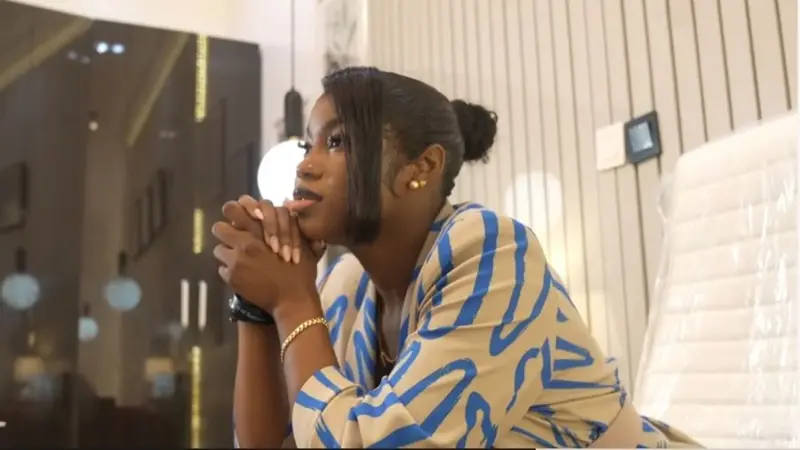Cultural representations have a tremendous impact on young people’s identity, goals, and worldview. These cultural representations are especially important in the context of African youths, who are navigating a complicated interaction of traditional values, globalisation, and modern influences.
Youths from Africa are highly influenced by cultural representations when forming their identities. Their sense of self is built on a foundation of cultural behaviours, traditions, and symbols. These images offer a framework for comprehending one’s ancestry and place in the greater community.
Africans are influenced by narratives that celebrate their cultural diversity, highlighting the richness and depth of their histories, languages, music, art, and traditions. These representations foster a sense of pride, connection, and self-acceptance, empowering young individuals to embrace and celebrate their unique identities.
African youths’ perspectives on success and their career choices are influenced by cultural representations. In the past, careers in the law, medicine, or engineering were frequently linked to success. The concept of success is, however, broadening as a result of changing cultural representations, which recognise the importance of a variety of professions like the arts, entrepreneurship, and community leadership. Young people are being exposed to more and more success stories of those who have made a difference via their cultural contributions and gained notoriety. Young people are motivated by these portrayals to follow their passions, hone their skills, and make significant contributions across a range of fields.
Cultural representations have a significant impact on the socio-cultural values held by Africans. Traditional cultural values stress collectivism, elder respect, communal peace, and intergenerational collaboration. These ideals are frequently reinforced by cultural representations of positive role models who embody these qualities. Africans internalise these beliefs, which guide their conduct, decision-making, and interactions within their communities. However, it is vital to highlight that cultural representations can also reflect societal issues such as gender discrimination, tribal hostilities, or socioeconomic inequities. As a result, youths may struggle to navigate these intricacies, attempting to balance old ideals with the reality of a changing world.
Youths in Africa gain resilience and a sense of pride through cultural representations. These depictions promote a good self-image and self-esteem by displaying the diversity and depth of African civilisations. Africans are taught to embrace their cultural norms and cherish their heritage, which helps them feel more a part of their community and valuable members of society. Indigenous languages, traditional arts, and rituals are all preserved and revived in large part thanks to cultural representations. As a result, cultural identity is strengthened, intergenerational information transmission is encouraged, and a strong sense of cultural pride and resiliency is fostered.
Culture representation have a huge impact on social and political participation. These depictions encourage young people to actively participate in holding their societies by highlighting past conflicts, liberation movements, and prominent persons. Africans are inspired to advocate for social justice, equity, and cultural heritage preservation. Cultural representations also help to build critical thinking skills by encouraging young people to question cultural norms, challenge oppressive systems, and contribute to good social change. They give young people a venue to express their problems, aspirations, and demands, so amplifying their collective strength and driving social and political revolution.
Cultural representations expose Africans to global viewpoints and promote cross-cultural interaction in an interconnected world. Africans have access to a variety of global cultural representations via media, travel, and internet platforms. They are able to widen their perspectives, confront misconceptions, and cultivate a global attitude thanks to this experience. Africans have the chance to share their own cultural practices, stories, and abilities with the world through cultural exchange programs, festivals, and collaborations, which promotes intercultural understanding and dialogue. Such contacts advance intercultural harmony, improve the participants own cultural experiences, and foster the growth of a global community.
Cultural representations also influence African youths’ economic empowerment and entrepreneurship. By showcasing successful individuals and enterprises within various cultural industries such as music, film, fashion, and crafts, these representations inspire young individuals to explore creative and entrepreneurial pursuits. African youths are encouraged to leverage their cultural heritage, artistic talents, and innovative ideas to create sustainable businesses that contribute to local economies and foster socio-economic development. Cultural representations can also attract international investments, tourism, and collaborations, creating economic opportunities for youths and empowering them as agents of change and economic growth.
While cultural representations have a significant impact on young people, they also provide difficulties and opportunities. On the one hand, limiting or narrow portrayals can promote preconceptions, limit individual expression, and exacerbate societal inequality. Africans require access to cultural representations that are diverse, authentic, and inclusive of their experiences. On the other hand, technological improvements and media channels enable Young people to create, share, and magnify their own cultural narratives. Social media, for example, enables users to define and manage their representations, giving a platform for self-expression, cultural exchange, and social change advocacy.
Cultural representations have a profound impact on Africans, shaping their societal values, conceptions of success, and sense of self. Cultural representations encourage sentiments of pride, connection, and self-acceptance among African youths, empowering them to embrace their diverse lineage and contribute to the development of their communities. Ensure that these representations are truthful, inclusive, and reflect the evolving reality of African communities. By reinterpreting and enhancing their cultural narratives through the use of technological advancements, they can portray their distinct identities in a more complex and empowering way. By accepting and appreciating cultural representations. Africans can ultimately create their own narratives and contribute to a more inclusive and prosperous future.
Sources
- https://sk.sagepub.com/reference/identity/n60.xml
- https://www.bounceradiolive.com/post/cultural-representation-in-african-films
- https://ecdpm.org/work/a-call-for-change-from-young-people-in-africa-and-europe-volume-10-issue-1-2021/a-new-africa-for-the-youth-beyond-the-colonial-thought
- https://archive.uneca.org/sites/default/files/uploaded-documents/ADF/ADF4/youth_symposium_-_a_policy_for_african_youth.pdf
- https://www.bounceradiolive.com/post/cultural-representation-in-african-films
- https://www.victoriafalls-guide.net/african-traditions.html#:~:text=African%20Traditions%20are%20expressed%20through,into%20the%20whole%20African%20culture.




